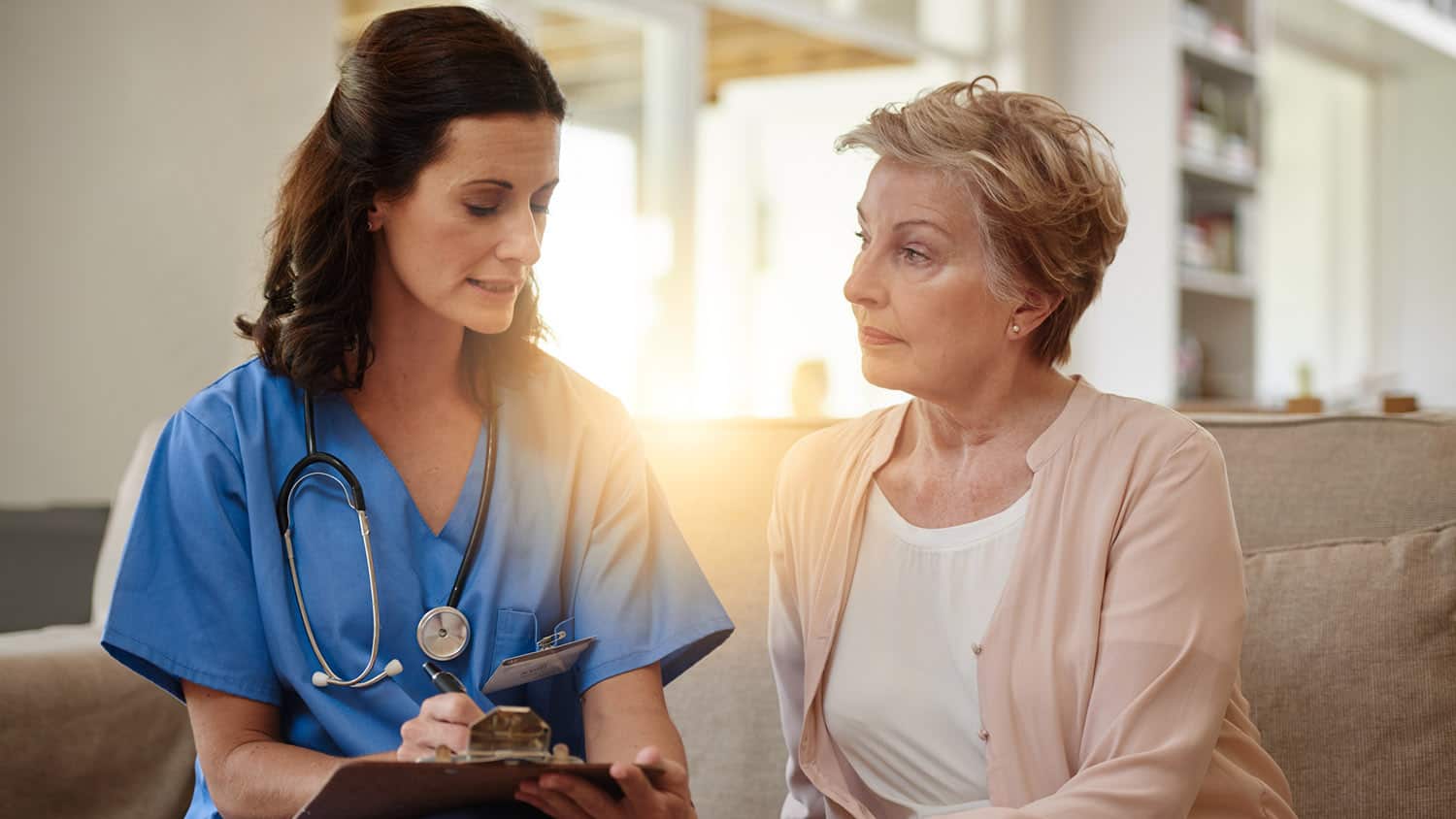
4 No-Stress Ways to Relieve Back Pain Naturally if You’re 60 and Over
While living a healthy life can help keep you active and spry in your later years, there’s still a lot of new aches and pains that start popping up, especially as you approach your 60s and beyond.
Back pain is one of the most common issues in older adults and is one of the top three reasons seniors visit their physician.
Why Back Pain Becomes an Issue
There are many reasons why you might suffer from back pain, but the most common are:
Changes in Your Discs and Joints
As you get older, your body might suffer from overuse. The discs that sit between your bones start losing moisture making them less effective as shock absorbers. If it’s not your discs, your joints might end up wearing down. Either option can lead to back pain.
Spinal Stenosis
Spinal Stenosis is another reason. Basically, the canal where your spinal cord passes through narrows down. This could happen due to disc degeneration or thickened ligaments.
Spondylolisthesis
Another cause can be spondylolisthesis – a slipping of vertebra, usually at the base of the spine. Depending on how far the vertebra slips, this could cause severe back and leg pain and numbness.
Luckily, there are a few things you can do to help relieve and even reduce the risk of experiencing recurrent back pain.
Rest Adequately
Taking enough rest is common advice for anyone who has injured themselves, but especially true for seniors. As we get older, it seems to take longer to recover to 100 percent.
And sometimes, you might end up healing only to 95 percent. If you’re experiencing back pain, give your body some adequate time to heal.
With that said, don’t rest too much! Anything over 48 hours can actually make your back pain worse and increase your recovery time. While you should lay off any strenuous exercises, after two days, you can start doing some light stretching to help improve the flexibility of your muscles.
Get Active
It might sound counterintuitive, but staying active can actually help relieve your back pain. In fact, it’s our lack of movement in everyday life that has led to an increase in back pain even among the younger generation.
Most adults spend over six hours sitting down. Not only is this bad for your overall health, it’s also terrible for your back.
Hours of inactivity lead to weakened core muscles and tense shoulder and back muscles. This only gets aggravated by poor sitting and standing posture.
Starting or continuing a good fitness regimen can actually help relieve back pain and get you back on your feet sooner. You don’t have to become a gym rat to improve your fitness. In fact, you don’t even need to leave the comfort of your home if you don’t want to.
When picking exercises, choose ones that focus on strengthening your core, such as: Pilates, Yoga, or Tai Chi.
You should also speak to a physical therapist, especially if you experience recurrent episodes. They can then prescribe a back-focused program to help you gain strength and improve your core.
Get a Massage
A good massage not only leaves you feeling relaxed, it also helps promote better circulation and flexibility, both essential for relieving back pain. Whether you’re suffering from a herniated disc or just experiencing general back pain and stiffness, massages are a great, natural option to easing your pain.
If you have the money, opt for a professional massage with an expert who can work out those stiff and sore spots on your back.
In general, deep tissue massages tend to work the best for back pain as they really work out the kinks and knots. If the pressure is too much, you can always ask the masseuse to apply less pressure, or you can go for something a bit gentler such as the Swedish massage.
If you don’t have the time or money to spend on a professional masseuse, you can opt to give yourself a massage by purchasing your own back massager or using a foam roller to stretch out your back.
Try Acupuncture
If you’ve never gotten acupuncture, it can seem daunting. After all, who in their right mind would pay to get needles stuck in their body? However, studies have shown that acupuncture is actually helpful in reducing back pain, especially among those who experience chronic back issues.
Acupuncture began in China over 2,000 years ago and involves inserting a series of needles into the body at specific points. These needles are supposed to help stimulate the body’s Qi, which in turn helps relieve pain and improve health.
Since acupuncture is considered an alternative treatment, it might not be covered by your insurance, so make sure to consider this before booking an appointment.
As well, do a thorough investigation of the various acupuncturists in your area and find a reputable practitioner. Then speak to your doctor before you decide to go forward with treatment.
The fact that your body may not be as resilient and flexible as it was in your 20s, doesn’t mean you have to deal with constant back pain. These tips should help alleviate and also prevent back pain from recurring.
With that said, you should speak to your doctor if you are experiencing recurrent back pain to make sure there isn’t a more serious underlying issue.
Let’s Have a Conversation:
How often do you experience back pain? How are you managing it in your day-to-day life? We’d love to hear your thoughts! Let’s continue the discussion in the comments below!







I have suffered with back pain for over 20 years and had to retire from work early because of it, it affects every aspect of my life I am diagnosed with bulging discs and scoliosis and been prescribed strong painkillers for it which doesn’t really work.
I am unable to walk very far or stand for long without excruciating pain.
I would be interested to know if anyone has successfully had an operation for this.